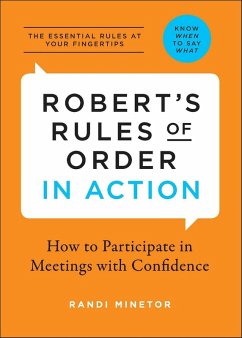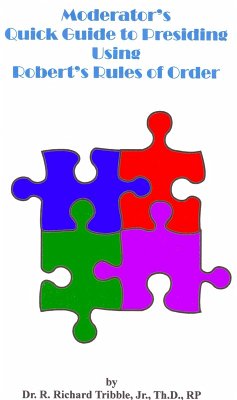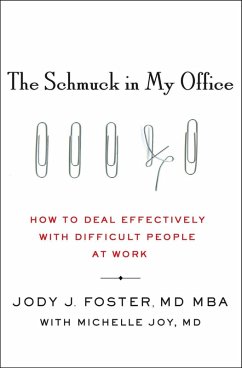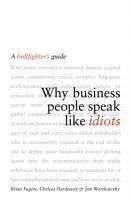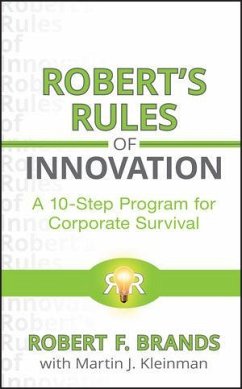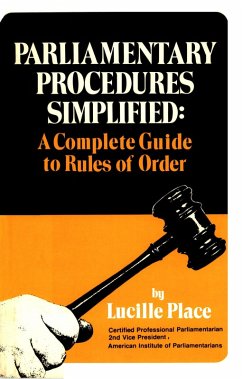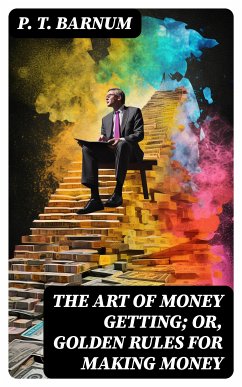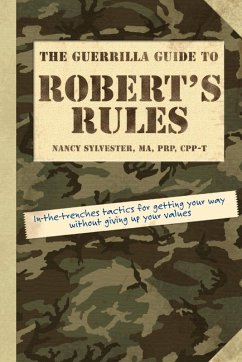
Robert's Rules of Order (eBook, ePUB)
Enriched edition. Pocket Manual of Rules of Order for Deliberative Assemblies
Kommentar: Hargrove, Crispin / Redaktion: Good Press
Versandkostenfrei!
Sofort per Download lieferbar
1,99 €
inkl. MwSt.
Weitere Ausgaben:

PAYBACK Punkte
0 °P sammeln!
In "Robert's Rules of Order," Henry M. Robert presents a comprehensive guide to parliamentary procedure that has become a cornerstone of democratic governance in various organizations since its first publication in 1876. This meticulously crafted manual elucidates the protocols of meetings and decision-making processes, promoting fairness and order through structured debate and voting. Written with clarity and precision, the text employs an accessible literary style, making intricate procedural rules understandable to a wide audience. Its lasting influence is evident in countless organizations...
In "Robert's Rules of Order," Henry M. Robert presents a comprehensive guide to parliamentary procedure that has become a cornerstone of democratic governance in various organizations since its first publication in 1876. This meticulously crafted manual elucidates the protocols of meetings and decision-making processes, promoting fairness and order through structured debate and voting. Written with clarity and precision, the text employs an accessible literary style, making intricate procedural rules understandable to a wide audience. Its lasting influence is evident in countless organizations that aspire to foster effective communication and equitable participation. Henry M. Robert, a United States Army officer, was inspired to write this seminal work following his experiences in various committees and organizations. Recognizing a common struggle with chaotic meetings and unproductive discourse, he sought to establish a definitive set of rules to ensure orderly and efficient group interactions. Robert's military background equipped him with a keen understanding of hierarchy and discipline, qualities that informed the construction of his authoritative guide. This book is highly recommended for anyone involved in group decision-making, including leaders, organizational members, and students of governance. "Robert's Rules of Order" empowers readers with the tools to conduct meetings effectively, ensuring that all voices are heard and that proceedings remain productive. Whether for professional settings or community gatherings, this work is indispensable for fostering democratic principles. In this enriched edition, we have carefully created added value for your reading experience: - A succinct Introduction situates the work's timeless appeal and themes. - The Synopsis outlines the central plot, highlighting key developments without spoiling critical twists. - A detailed Historical Context immerses you in the era's events and influences that shaped the writing. - An Author Biography reveals milestones in the author's life, illuminating the personal insights behind the text. - A thorough Analysis dissects symbols, motifs, and character arcs to unearth underlying meanings. - Reflection questions prompt you to engage personally with the work's messages, connecting them to modern life. - Hand-picked Memorable Quotes shine a spotlight on moments of literary brilliance. - Interactive footnotes clarify unusual references, historical allusions, and archaic phrases for an effortless, more informed read.
Dieser Download kann aus rechtlichen Gründen nur mit Rechnungsadresse in A, B, BG, CY, CZ, D, DK, EW, E, FIN, F, GR, H, IRL, I, LT, L, LR, M, NL, PL, P, R, S, SLO, SK ausgeliefert werden.




